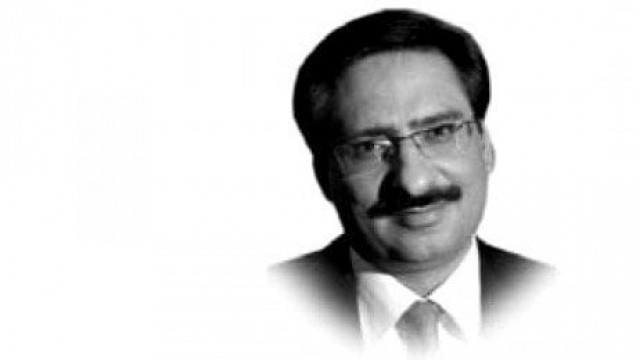A day to remember

A day to remember
(Updated, April 29, 2010 to reflect changes mentioned here)
It was a Saturday, a day when courts remained functionally closed but the judges and the staff at the Supreme Court were busier than usual.
“We were working till 3 am last night,” the chief protocol officer, Mr Hameed told the Chief Justice Iftikhar Muhammad Chaudhry. The chief justice was sitting on a sofa with a pile of files in front of him. In my 45-minute meeting with him we discussed a wide range of topics, from his ideas to his ideals. But it was his thoughts on the country’s democratic system that intrigued me the most. He spoke of Rana Bhagwandas with great admiration for his courage: “It is we who are Muslims but it is Rana sahib who has stronger belief [in democracy].”
I was astonished to know that his thoughts on the present democratic system were contrary to the impression being spread about him. The PPP and PML-N workers imminently see the parliament and the judiciary locking horns. They expect the apex court will issue an ‘order’ and dissolve the PPP-led government. However, it was Justice Chaudhry’s belief that the political process must not be interrupted as it was a necessary tool for the stability and prosperity of the country. He was of the view that the PPP should govern the country according to the mandate it received and thwart non-democratic forces. He had also said that institutions were servants of the state and should keep within their own sphere of responsibilities. He spoke on what could have transpired had Benazir Bhutto not been assassinated. He said: “She learned a lot during her exile and if she had returned to power, the level of governance would have been far better.”
Speaking about the media in the country, he believed it had achieved great things. It had become very difficult to sweep issues under the rug anymore. The media was everywhere and making ordinary Pakistanis aware of and think deeper about, issues. And hence its independence was a key ingredient for democracy.
Speaking on intra-party dictatorships, he said if political parties were allowed to work freely in the past, they would have created a democratic internal culture. I realised that a pro-democracy chief justice will not allow hurdles in the parliament’s supremacy without compromising on the constitution and law. It would be his duty to safeguard the fulfilment of the government’s mandate but ensuring criminals were not spared.
As I left his room close to two in the afternoon, I realised the stark difference in the overall mood and climate. While I could feel the peace and tranquillity inside the chief justice’s chambers, there was noise and chaos outside. I asked myself: “Why this difference?”














COMMENTS
Comments are moderated and generally will be posted if they are on-topic and not abusive.
For more information, please see our Comments FAQ